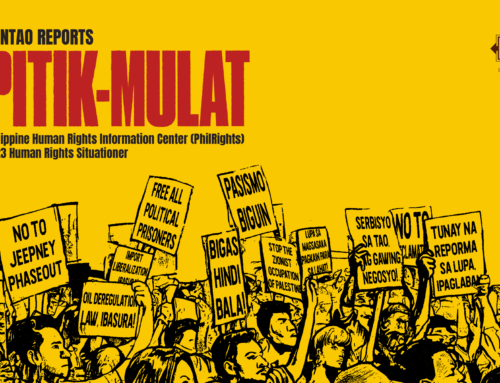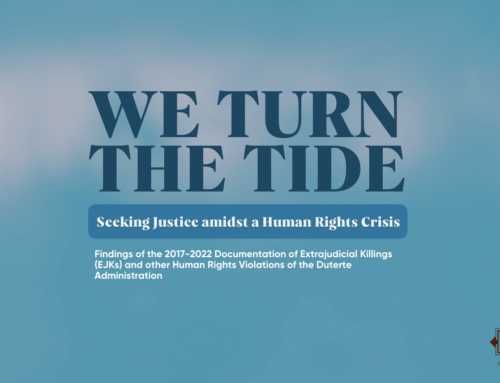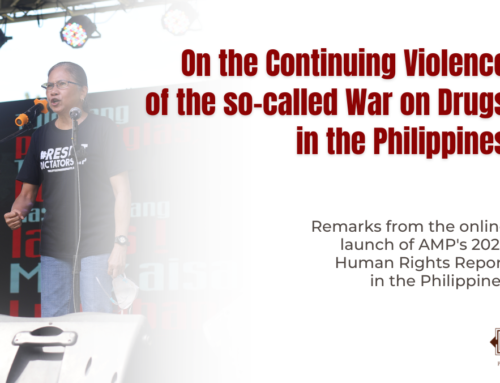(Tunis) – Tunisia’s new justice minister should ensure the immediate release of Sami Fehri, the director of the privately owned Attounissia TV channel.
Tunisia’s highest court on April 5, 2013, quashed his indictment and detention order and ruled that his continued detention is illegal. The court had quashed the detention order twice previously, on November 28 and December 5, 2012, but officials refused to release him. The earlier decisionssent the case back to the Court of Appeal’s Accusations Chamber to be reconsidered by a different panel of judges.
“What does it take to free someone from jail if officials keep ignoring decisions from the highest court in the land to release him,” said Eric Goldstein, deputy Middle East and North Africa director at Human Rights Watch. “The authorities are showing utter disregard for the law by keeping Sami Fehri locked up.”
The decision by the Court of Cassation should result in Fehri’s immediate release since it confirmed that the authorities have no further legal basis to detain him, Human Rights Watch said. However, the Public Prosecution Office for the third time has refused to carry out the decisions, claiming that the authority to release Fehri rests with a lower court. Under the Code of Criminal Procedure, the Public Prosecution Office of each court is in charge of carrying out the court’s decisions.
Fehri is accused of embezzlement. He contends, however, that a satirical show mocking leading politicians on his station was the real reason for his arrest.
In the April 5 ruling, the court stated that, “Keeping Fehri under the former detention order despite the…decision to quash it is an infringement of his rights and a violation of his bodily integrity and his right to a fair trial respecting legal procedures. In addition, it is devoid of any legal basis.”
On November 28, the day of the first Court of Cassation decision, the public prosecutor handling Fehri’s case at that court issued a warrant ordering prison authorities to release him. But the prosecutor later retracted that order on the grounds that the Cassation Court decision did not encompass the detention order.
Fehri’s lawyers asked the Cassation Court to clarify its decision. On December 5, the Cassation Court issued a decision confirming that the arrest warrant was part of the decision. However, when Fehri’s lawyers asked the Cassation Court’s prosecutor to re-issue the release order, he refused on the grounds that the order should come from the Accusation Chamber because the case had been sent back there. When Fehri’s lawyers asked the Accusation Chamber to issue the release order, the chamber issued a decision, dated December 6, declaring that it did not have the authority and that the Cassation Court had that prerogative.
The lawyers then filed another request to the Accusation Chamber to release their client. But on January 3, the Accusation Chamber issued a new decision in which it renewed the detention of Fehri together with five former directors of the national television channel charged in the same case.
The Cassation Court reviewed this new indictment and on April 5 quashed it. Despite the ruling’s clear terms, the Cassation Court’s prosecutor still refuses to issue an order to release Fehri.
Justice Minister Nadhir Ben Ammou, in office since March, told Fehri’s lawyer that he had no authority to order Fehri’s release or to exert pressure on the public prosecutor to release him. However, article 22 of the Criminal Procedure Code gives the Justice Ministry authority over the Office of the Public Prosecutor.
Fehri’s lawyers filed a criminal complaint for arbitrary detention against the public prosecutor of the Court of Cassation at the Tunis First Instance Tribunal, a lower court, but the court has not responded yet.
The Accusation Chamber of the Tunis Appeals Court first indicted Fehri on August 24 for contributing to financial losses at the state-operated National Television Enterprise as a result of malfeasance by an independent TV production company, Cactus Production. Cactus Production was controlled at the time of the presidency of Zine el-Abidine Ben Ali by Fehri and Belhassen Trabelsi, Ben Ali’s brother-in-law. An investigative judge initiated the inquiry in June 2011. Fehri has been detained since August 28 in Mornaguia prison, near Tunis.
Fehri was charged with embezzling public funds under article 96 of the penal code, which provides for up to 10 years in prison for any public servant who uses his position to gain unfair advantage for himself or a third party. He was charged as an “accomplice” while the five former directors of National Television were indicted as primary authors of the offense.
Fehri’s indictment and arrest followed the broadcast by Attounissia TV of several episodes of a show called “The Political Logic,” which uses puppets that caricature leading national political figures. The targets included President Moncef Marzouki, then-Prime Minister Hamadi Jebali, and Rached Ghannouchi, leader of the ruling Islamist Ennahda party.
Under the Universal Declaration of Human Rights, no one may be subjected to arbitrary arrest, detention, or imprisonment. Detention is arbitrary when there is no legal basis for it.
“The justice minister should uphold judicial independence by ensuring that the decision of the highest court in the land is respected,” Goldstein said. “Fehri has now been in jail for more than four months since that court ordered his release.”
Powered By WizardRSS.com | Full Text RSS Feed | Amazon Plugin WordPress | Android Forums | WordPress Tutorials







